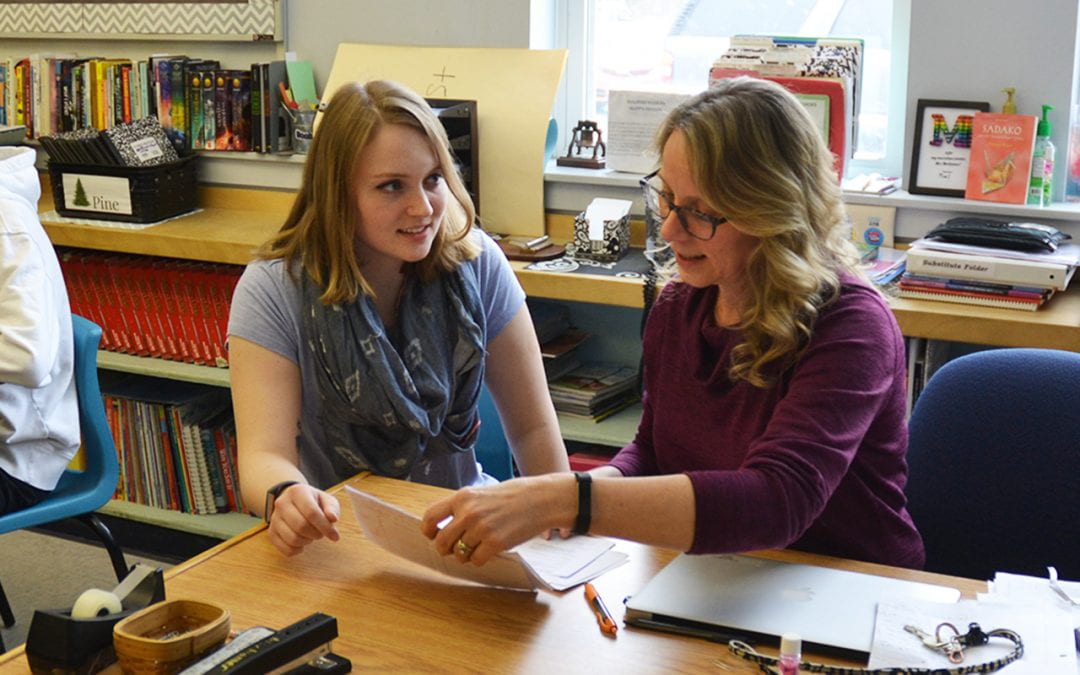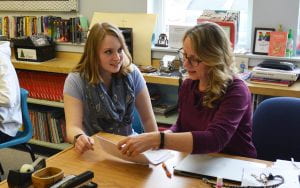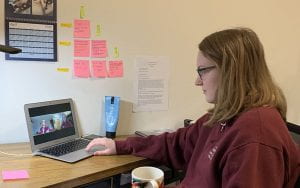Is standardized testing coming to an end for future educators?
By Sophia Turgeon, Contributing Writer.
The Maine Department of Education announced this summer that they are eliminating the Praxis for aspiring teachers.
The Praxis is a series of tests created to fully equip college students for a career in teaching. The Praxis tests consist of multiple tiers of testing in certain subjects. Students were required to get certain scores on each test in order to advance into their practicum semester. On June 16 Governor Janet Mills signed a bill into law that resulted in Praxis exams being eliminated as a requirement for teachers.
Paige Polley, a current junior at the University of Maine at Farmington who took Praxis I is relieved that there is no more testing.
“As a person who doesn’t test well, Praxis did create a lot of stress for me that I feel like was unnecessary because it doesn’t reflect my intelligence and my ability to teach. However, with that being said, I did take my Praxis I at a time, which was $270 and I failed two of them, so I had to retest. And right after my retesting with passing results, I found out we didn’t need to take them anymore. I was upset and annoyed but now I don’t have to worry about Praxis II and wasting more money,” Polley said.
Money is oftentimes a concern for college students who have to spend hundreds of dollars on these tests.
Emma Williams, also a junior at UMF has a different way of thinking about Praxis exams being eliminated. Williams completed Praxis I and passed on her first attempt. She also had completed two portions of the Praxis II exams before the exam requirements were removed. With these tests being removed, students are worrying that they may not be as equipped for educating as some other teachers may be.
“I like it but it also concerns me. I’m happy I don’t have that pressure anymore, but worry when thinking about the future and how it will impact me, how I teach, and what I teach. How will I be compared to others who took them,” Williams said.
Williams also has taken both of her practicums and feels as though the Praxis exams served more as a refresher for general knowledge than a key element to being a good teacher.
“I feel as though the classes I was taking in college during my practicums were more important and impactful while in the classroom rather than the Praxis exams,” Williams confessed.
Individuals that are in the teaching community have been told how important these exams are to become certified educators. Now, without these exams being mandatory, students may feel some anxieties about how they will be successful teachers without the confidence of passing.
The Associate Professor of Secondary and Middle Education here at UMF, Clarissa Thompason, believes that these tests, along with standardized tests as a whole, are not the proper way to gauge whether or not a student would eventually become a good teacher.
“[…] I don’t think they [Praxis exams] really mark how bright you are, how motivated you are, or how well you’re gonna do in college. It discriminates against English language learners, it discriminates against kids from less privileged backgrounds, it discriminates against kids from poorer schools. It becomes a gateway here and kids who might be fantastic teachers can’t get past that and spend tons of money on it. So, they measure something, but it’s really small,” Thompson said.
Currently, licenced future Maine educators are required to get fingerprinted, earn at least a bachelor’s degree in education, and be accredited by a university.


